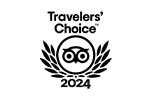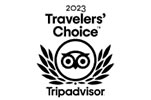Preparing to Travel
- PASSPORTS – To travel to East Africa your passport needs to be valid for at least six (6) months after your journey ends, and should have a minimum of four (4) blank visa pages for entry and exit stamps.
- VISA – Since we major in East Africa countries which include Kenya, Tanzania, Rwanda and Uganda see below guideline for other countries:
- Kenya – To travel to Kenya you must apply for a visa and is normally applied here – https://evisa.go.ke/ and is normally valid for 3 months from the date of travel. They charge $ 51 per visa application for anyone of 16yrs and above. Anyone below 16yrs does not need a visa to travel to Kenya but needs to declare by the person accompanying them during application of the adult. Visa process takes approximately 24hrs – 72hrs for processing. When travelling to Kenya make sure you only apply for a Single Entry Visa (SEV) not a multicounty visa when here on tourism purposes. Guests who don’t need a visa to travel to Kenya kindly refer to the list here to confirm if you need a visa – https://evisa.go.ke/eligibility
- Tanzania – To travel to Tanzania need a visa and can get on arrival or you can apply online prior to arrival here – https://visa.immigration.go.tz/ . Get more details of guidelines here – https://visa.immigration.go.tz/guidelines
- Uganda – To travel to Uganda need apply visa online and NOT on arrival. For more details refer here – https://www.visas.immigration.go.ug/
- Rwanda – To travel to Rwanda get visa on arrival or apply online here for more details – https://www.migration.gov.rw/
- VACCINATIONS – Kenya and Tanzania currently have no COVID-19 vaccination or testing requirements for entry so need of the COVID Vaccinations to enter either. A yellow fever vaccination is only required to enter Kenya and Tanzania if you are arriving from, or have transited through, a yellow fever-endemic area in South America or Africa–including East African countries such as Kenya and Uganda. WHO provide a current list of all affected countries here – https://www.fitfortravel.nhs.uk/advice/disease-prevention-advice/yellow-fever/yellow-fever-risk-areas . For guests visiting Kenya Only no need of yellow fever as it’s not a MUST but recommended. For guests whose itinerary includes visits to both Kenya & Tanzania safari, vaccination for yellow fever is necessary and you must carry an International Certificate of Vaccination provided by your physician; you may be denied entry without it. If your physician advises against receiving the vaccination because of your personal medical history, he or she can provide you with the necessary documentation for the country/countries you are visiting. You will be travelling to areas of malaria transmission. We strongly advise that you speak with your doctor or travel clinic regarding your itinerary, individual risk assessment and options for mosquito bite prevention and antimalarial drugs. We recommend filling any prescriptions before you depart.
- PLASTIC BAGS IN KENYA AND TANZANIA
The governments of Kenya and Tanzania have implemented a ban on plastic bags. The ban applies to “carrier and flat bags,” primarily targeting bags from shops and grocery stores, but also extending to Ziploc bags, duty-free bags and bubble wrap. If tourists have those types of bags visible while in the airport, they are likely to be confiscated. Bags designed for multiple use, such as zippered cosmetic bags, are not included in the ban.
- PACKING LIST & BAGGAGE RESTRICTIONS
On flights within East Africa, each passenger is limited to a maximum baggage weight of 33 pounds (15 kilograms). This includes the weight of purses and camera equipment in addition to regular luggage. Luggage restrictions are adhered to very strictly and passengers should pack their bags accordingly. Soft-sided luggage or duffels are preferable to hard luggage for storage on safari vehicles and also on aircraft used throughout East Africa. Dimensions should not exceed 23 inches (58 centimeters) long x 13 inches (33 centimeters) high x 10 inches (25 centimeters) wide. Flights aboard light aircraft within East Africa may not be direct. Multiple stops may be made to offload passengers at safari camp landing airstrips.
- WHAT TO CARRY
- Bright summer clothes for safari tour (strong colors attract unwanted attention from flies found in certain areas of the park)
- Fuller clothes for evenings at the hotel and lodge such as long pants and long –sleeved shirts to protect you against mosquitoes after sunset and if necessary against the sun.
- A jacket/ sweater as it can be cool in the early morning and evening.
- Summer foot wear (e.g. sport shoes and cotton socks/). To avoid walking bare feet and or leaving your legs naked at night due to mosquitoes.
- Power adapter with 3-4 sockets. UK type of sockets are used in East Africa countries.
- Small flashlight and extra batteries
- Hat that shields against hot sun.
- Sunscreen sun glasses and lip balm.
- Extra batteries for cameras, recorder.
- A few copies of all personal documentation such as passports, flight tickets, travel insurance, visas, vaccination cards and international debit cards.
- Light weighed binoculars.
- REGISTER YOUR JOURNEY
Be sure to register with your nearest embassy or consulate for the destinations included in your journey. U.S. citizens can register through STEP, the Smart Traveler Enrollment Program (step.state.gov/step). Canadian citizens can enroll in Registration of Canadians Abroad at Registration of Canadians Abroad.
- UPDATE VACCINES & MEDICATIONS
Check with the Centers for Disease Control and Prevention (cdc.gov/travel) or the World Health Organization (who.int/en) for the latest on required and recommended vaccines and risk for malaria for your destination. You’ll want to visit your doctor or local travel clinic a couple of months before departure to allow time for any vaccinations to take effect or to fill any prescriptions. Be sure to pack your original COVID-19 and other vaccination certificates and required health documentation in your personal carry-on baggage in case you are asked to show them on arrival.
- MONEY MATTERS
We recommend traveling with some cash and at least two different major credit cards, such as Visa and Mastercard, so you have backup if your card is not accepted or lost. Contact your bank and credit card companies to let them know where and when you’ll be traveling, as well as confirm any foreign transaction fees. When carrying cash, try to travel only with recently issued currency in smaller denominations; many merchants overseas won’t accept wrinkled or torn bills. Only exchange currency at authorized outlets such as currency exchanges, ATMs, or hotels and save receipts as they may be required for exit.
- KEEP CONNECTED
While most smartphones work overseas, you might need to turn on international roaming service before you travel. Contact your carrier for information on coverage and voice and data plan options while traveling abroad.
- GETTING ONLINE
Many hotels and public places have Wi-Fi, and you’ll usually be able to stay connected throughout your journey, although Internet access may be poor to nonexistent in remote destinations. Note that some countries block access to social media sites or otherwise impose restrictions on what content you can view or send online.
- WEATHER & TIME ZONES
Many websites and smartphone apps allow you to check the forecast and time zones for specific destinations. We recommend weather.com and timeanddate.com/worldclock. Upon arrival, the time on most smartphones will automatically adjust to the local time.
- STAY HEALTHY ON THE ROAD
Carry your prescriptions and over-the-counter medications in their original containers in your carry-on luggage. Pack a simple first-aid kit along with medicines for motion sickness and mild upset stomach. As a precaution, use only bottled water and avoid foods from street vendors. Take care to observe safe health practices when traveling. You may be required to wear a mask in accordance with local regulations and service provider requirements; details specific to your journey are included in Essential Information. If you begin to feel unwell at any point in your journey, please inform your guide. All protocols are subject to change.
- PACKING FOR YOUR JOURNEY
Plan on packing light — many MUFASA TOURS AND TRAVELS journeys include domestic flights that impose much stricter weight restrictions than your international carrier. Consult the Packing List and Baggage Restrictions specifics provided in Essential Information. Be sure to also confirm baggage limitations with your international carrier before packing. The typical attire on MUFASA TOURS AND TRAVELS journeys is relaxed and informal during the day. Choose comfortable, versatile clothing that can be layered to account for changes in the weather throughout the day. Smart casual is appropriate for evenings. Be sure to bring a global travel adapter set with you to recharge your electronics at your hotel or aboard ship.
- FLIGHTS
Be sure to reconfirm your international flights 24 hours prior to your departure. Tickets for any internal flights, if included on your itinerary, will be issued by MUFASA TOURS AND TRAVELS representatives at your destination and presented to you as needed.
- KEEP VALUABLES SECURE
We strongly recommend leaving valuables such as jewelry at home as MUFASA TOURS AND TRAVELS cannot be responsible. Use safes where available to secure your valuables, especially passports, money, jewelry, electronics, and medications. Replacing a lost or stolen passport is much easier if you have a copy on hand. Pack a photocopy of your passport’s personal information page with your luggage, and keep a photo of it on your smartphone.
- ARRIVE TO A WARM WELCOME
Your MUFASA TOURS AND TRAVELS local representative meets you at the airport when you arrive. See your itinerary for additional arrival instructions.
- SMART SHOPPING
If you are interested in shopping, your MUFASA TOURS AND TRAVELS guide may recommend local shops; however, MUFASA TOURS AND TRAVELS is not responsible for the quality or value of merchandise. Any purchases and shipping are at your sole discretion. Be sure to review your credit card receipts before signing, paying special attention to currency conversion. We recommend taking items with you in lieu of shipping them whenever possible. Consult the local customs authority (cbp.gov in the U.S. and travel.gc.ca in Canada) for information on what you can bring back and duty taxes. Keep receipts and items together.
- PHOTOGRAPHY ETIQUETTE
Be sure to ask permission before taking pictures of local people, including small children. Note photography is not permitted in some locations, which is usually clearly marked. Ifin doubt, ask your guide to avoid having your camera confiscated.
- TIPS ON TIPPING
Tipping on MUFASA TOURS AND TRAVELS journeys vary depending on where and how you travel. Consult the Tipping Guidelines provided for your journey in Essential Information.





